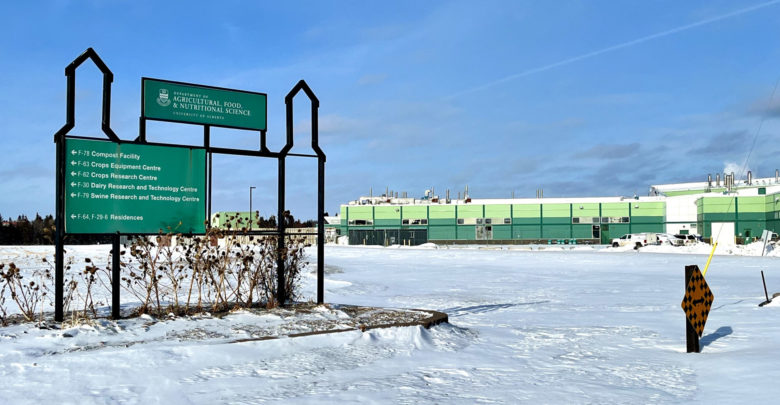New Institute for Cellular Agriculture is in development at U of A’s Agri-Food Discovery Place
This three-way partnership will launch Canadian innovation and research in cellular agricultural practices, working towards greater issues in food sustainability.
 Megan Posyluzny
Megan PosyluznyNew Harvest has announced that their OpenCellAg initiative with CULT Food Science will expand to partner with the University of Alberta. This partnership will work to develop an Institute of Cellular Agriculture at U of A’s Agri-Food Discovery Place.
The development of an Alberta-based cellular agriculture (cell-ag) institute will provide access to research infrastructure, funding, and wide-reaching industry connections to grow in Canada and beyond.
“We’re first and foremost hoping that this partnership will serve our learning community,” said Heather Bruce, a U of A professor and chair in the department of agricultural, food, and nutritional science.
Bruce spoke about how current investment in cell-ag research in North America is limited, yet the commercial space is very active. This partnership can be used to launch more courses at the U of A which encourages local research innovations from the technical sciences, and more research into the market implications of cell-ag.
“Cellular agriculture is becoming important, not as a replacement for our current food practices, but something that is in addition to it … I think that it will both complement as well as enhance the overall field of agriculture in Canada,” Bruce said.
While offering the potential to advance agricultural practices, Yadira Tejeda-Saldana, director of responsible research innovation Canada at New Harvest, spoke about the significance of creating an Albertan-based institute for cell-ag technologies.
“It is really important for the success of these new technologies that we have all the right expertise and all of the right disciplines in one place. And I think that the U of A has all of that,” Tejeda-Saldana said.
Tejeda-Saldana added that Isha Datar, the executive director of New Harvest is from Edmonton, and is also a U of A alumnus. She also spoke about how the prairies’ connection to agriculture and crop production develops an added value for cell-ag companies. Alongside access to critical research resources through the U of A, the combination of these factors seemed like an ideal spot for starting this initiative, according to Tejeda-Saldana.
As an emerging technology, cell-ag has important implications for the future of alternative forms of food production, which can cultivate environmentally-specific foods outside of normal cultivation circumstances or the challenges associated with them.
Tejeda-Saldana explained that the technology of cell-ag allows researchers to create “any type of agricultural product you see in cell cultures,” rather than getting products from natural sources such as animals, plants, or coal.
Similarly, Lejjy Gafour, chief executive officer of CULT Food Sciences, spoke about the potential of cell-ag, in the context of global issues such as climate change and food sustainability.
“Food is both subject to the effects of climate change which we are facing, but is also a core contributor to it. So, it’s kind of a self-reinforcing loop. We need to eat, there is no way around that. And we need to be able to find ways that can provide us food security in the future, while still working towards the path of reducing the impact that food production can have on climate change,” Gafour said.
As the impacts of climate change affect food production systems, Gafour highlighted the resilience of cell-ag.
For example, zoonotic diseases are diseases which can be transmitted from animals to humans, or animals to animals — putting animal populations at risk of being eradicated.
The production methods of cell-ag technologies can reduce human and animal infection risk from zoonotic diseases, in addition to mitigating other environmental factors.
“[Cellular agriculture] reduces the amount of water and land use substantially, making it more resilient against those shocks, and against the changing environment,” Gafour said.
In conjunction with these global implications and with food production in climate change, a cell-ag institute provides open knowledge for the industry to utilize.
“Another angle to the institute is creating and promoting open and accessible research and frameworks for everyone to build on globally, which has not been accessible in this industry to date,” Gafour added.
With a background in policy, Tejeda-Saldana emphasized that “we need to make sure that the technology is going to be accessible, that it’s going to be a technology that people in other countries could use as well, that we take into consideration the cultural implications and the social implications of this technology.”
Bruce reflected on the potential global reach that the Institute of Cellular Agriculture at the U of A may have.
“We’re very excited about it. There’s an enormous amount of potential and we hope that we can realize it with our partners.”




